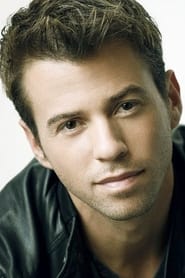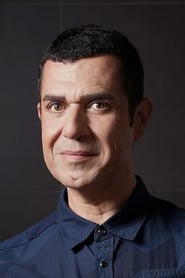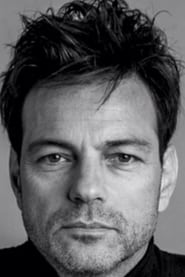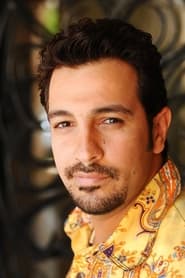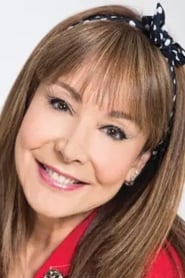
Ask Your Own Question
What is the plot?
In the opening scenes of "Rosh Gadol," we are introduced to the protagonist, a young man named Rami, who is living in a small town in Israel. Rami is portrayed as a bright but troubled individual, struggling with the expectations placed upon him by his family and society. He feels a deep sense of inadequacy, particularly in relation to his father, who is a respected figure in the community. Rami's internal conflict is established as he grapples with his desire to forge his own path while feeling the weight of familial and societal pressures.
As the story unfolds, Rami's life takes a dramatic turn when he becomes involved with a group of friends who are engaged in petty crime. This group, led by a charismatic but reckless individual named Yossi, introduces Rami to a world of thrill and danger. Rami is initially hesitant but is drawn in by the excitement and the sense of belonging that comes with being part of the group. This decision marks a pivotal moment in Rami's life, as he begins to distance himself from his family and the values they instilled in him.
The plot thickens when Rami and his friends plan a heist that goes awry. During the heist, they encounter unexpected resistance, leading to a chaotic confrontation with the store owner. In the heat of the moment, Rami is forced to make a split-second decision that results in a violent altercation. The scene is intense, with Rami's heart racing as he grapples with the consequences of his actions. The aftermath leaves him shaken, and he begins to question the path he has chosen.
As Rami tries to come to terms with the violence of the heist, he finds himself increasingly alienated from his family. His father, noticing Rami's change in behavior, confronts him, leading to a heated argument that reveals the deep-seated issues between them. Rami's emotional turmoil is palpable as he feels torn between his loyalty to his friends and his desire to regain his father's approval. This confrontation serves as a catalyst for Rami to reflect on his choices and the direction of his life.
In the following episodes, Rami's relationship with Yossi becomes strained as Yossi's reckless behavior escalates. Rami witnesses Yossi's increasing disregard for the law and the safety of others, which culminates in a dangerous situation where they are pursued by the police. The chase is fraught with tension, showcasing Rami's internal struggle as he grapples with fear and the desire to escape the life he has chosen. The adrenaline-fueled sequence highlights Rami's desperation to break free from Yossi's influence.
As the police close in, Rami makes a critical decision to abandon Yossi during the escape. This moment is filled with emotional weight, as Rami realizes that he must prioritize his own safety and future over his loyalty to a friend who is leading him down a dark path. The choice leaves Rami feeling guilty and conflicted, as he grapples with the consequences of leaving someone behind.
In the aftermath of the chase, Rami attempts to reconnect with his family, seeking redemption for his past actions. He reaches out to his father, who is initially resistant but eventually agrees to meet. Their conversation is charged with emotion, as Rami expresses his regret and desire to change. This pivotal moment marks a turning point in Rami's character arc, as he begins to take responsibility for his actions and seeks to rebuild the trust that was lost.
However, Rami's past continues to haunt him as Yossi resurfaces, threatening to drag him back into the criminal world. Yossi's arrival is marked by a sense of menace, as he confronts Rami and demands his loyalty once more. The tension escalates as Rami is faced with the choice of standing up to Yossi or succumbing to the pressure of their past friendship. This confrontation is intense, filled with emotional stakes as Rami fights to assert his independence.
In the climax of the series, Rami must confront Yossi in a final showdown. The scene is charged with tension as Rami stands his ground, refusing to be pulled back into a life of crime. The confrontation is physical and emotional, showcasing Rami's growth as he fights not just for his own freedom but also to break the cycle of violence that has defined his life. The struggle is fierce, with Rami drawing on his inner strength to overcome Yossi's aggression.
Ultimately, Rami emerges victorious but not without scars. The resolution sees him returning to his family, where he begins the long process of healing and rebuilding relationships. The final scenes depict Rami's journey toward redemption, as he embraces a new path that honors his true self and the values he once strayed from. The emotional weight of his journey is palpable, leaving viewers with a sense of hope for Rami's future as he steps into a new chapter of his life.
What is the ending?
In the ending of "Rosh Gadol," the main character, Rami, confronts the consequences of his choices, leading to a dramatic resolution that impacts his relationships and future. The series concludes with Rami making a pivotal decision that alters the course of his life and those around him.
As the final episodes unfold, we find Rami grappling with the fallout from his actions throughout the series. The tension builds as he faces the repercussions of his decisions, particularly regarding his relationships with his family and friends. The emotional weight of his choices becomes increasingly evident, leading to a climactic confrontation with his father, who represents the traditional values Rami has struggled against.
In a pivotal scene, Rami stands in the family home, the walls echoing with memories of his childhood. His father, stern and unyielding, confronts him about his life choices. Rami, filled with a mix of defiance and vulnerability, expresses his desire to forge his own path, rejecting the expectations placed upon him. This moment is charged with emotion, as both characters reveal their fears and hopes, showcasing the generational conflict that has defined their relationship.
As the confrontation escalates, Rami's mother intervenes, attempting to mediate the growing tension. Her presence adds a layer of complexity, as she embodies the love and support that Rami has often taken for granted. The scene shifts to a quieter moment where Rami reflects on his mother's sacrifices, leading him to a deeper understanding of his family's struggles.
In the final act, Rami makes a significant choice that symbolizes his commitment to his own identity. He decides to leave the family home, a physical manifestation of his desire for independence. This decision is met with mixed reactions; his father is furious, while his mother expresses a bittersweet understanding. Rami's departure is filled with emotional weight, as he walks away from the life he has known, stepping into an uncertain future.
The series concludes with a montage of Rami's new life, juxtaposed with scenes of his family adjusting to his absence. Rami finds solace in his newfound freedom, but the emotional toll of his decision lingers. The final shot captures him standing alone, looking out at the horizon, symbolizing both hope and uncertainty.
In summary, the ending of "Rosh Gadol" encapsulates the themes of identity, family conflict, and the struggle for independence. Each character's fate is intertwined with Rami's journey, highlighting the complexities of their relationships and the impact of his choices on their lives. Rami's decision to leave signifies a turning point, not just for him, but for his family as they navigate the changes brought about by his departure.
Is there a post-credit scene?
"Rosh Gadol," the 2004 Israeli television series, does not feature a post-credit scene. The show concludes its episodes without any additional scenes after the credits roll. Instead, the focus remains on the narrative arcs and character developments throughout the episodes, leaving viewers with a sense of closure as the storylines reach their resolutions. The series is known for its intense drama and character-driven plots, which are fully explored within the main episodes.
What motivates the character of Roni throughout the series?
Roni, the protagonist, is driven by a deep desire to prove himself and escape the shadow of his family's expectations. His internal struggle is marked by a quest for identity and acceptance, which leads him to make choices that often conflict with his moral compass.
How does the relationship between Roni and his father evolve over the series?
Initially, Roni's relationship with his father is strained, filled with disappointment and unmet expectations. As the series progresses, they confront their differences, leading to moments of vulnerability and understanding that ultimately reshape their bond.
What role does the character of Yael play in Roni's journey?
Yael serves as both a love interest and a catalyst for Roni's growth. Her unwavering support and contrasting perspective challenge Roni to confront his fears and insecurities, pushing him towards personal development and self-acceptance.
How does the rivalry between Roni and his best friend affect the plot?
The rivalry introduces tension and conflict, as it highlights themes of jealousy and ambition. This competition drives both characters to make reckless decisions, ultimately leading to a pivotal moment that tests their friendship and forces them to reevaluate their priorities.
What significant event changes the course of Roni's life in the series?
A tragic accident involving a close friend serves as a turning point for Roni. This event forces him to confront the fragility of life and the consequences of his actions, leading to a profound transformation in his outlook and relationships.
Is this family friendly?
"Rosh Gadol," produced in 2004, is a drama that delves into complex family dynamics and personal struggles. While it offers rich storytelling, there are several aspects that may be considered objectionable or upsetting for children or sensitive viewers.
-
Family Conflict: The show features intense family disputes that can be emotionally charged, showcasing themes of betrayal, disappointment, and estrangement.
-
Mental Health Issues: Characters grapple with mental health challenges, which may be depicted in a raw and realistic manner, potentially distressing for some viewers.
-
Loss and Grief: The narrative includes themes of loss, including the death of loved ones, which can evoke strong emotional responses.
-
Social Issues: The series addresses various social issues, including poverty and discrimination, which may be heavy topics for younger audiences.
-
Mature Themes: There are moments that touch on adult relationships and moral dilemmas, which may not be suitable for children.
-
Emotional Turmoil: Characters experience significant emotional struggles, including feelings of guilt, shame, and despair, which could be upsetting for sensitive viewers.
Overall, while "Rosh Gadol" offers a compelling narrative, its exploration of deep emotional and social issues may not be appropriate for all audiences, particularly younger children.



